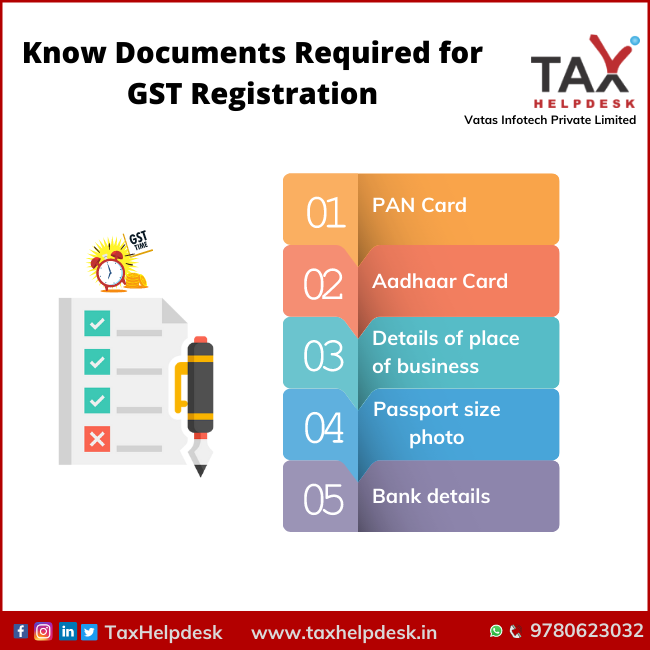Full Checklist for Reliable Singapore GST Registration
Full Checklist for Reliable Singapore GST Registration
Blog Article
The Ultimate Overview to Simplifying the GST Enrollment Refine and Needs for Local Business Owners

Comprehending GST Basics
To realize the principles of the Item and Provider Tax (GST) system, tiny business owners should initially comprehend its underlying concepts and effects. GST is a value-added tax imposed on most goods and solutions for domestic consumption. It intends to simplify the taxes procedure by replacing several indirect taxes enforced by the state and central federal governments. Under the GST regimen, companies are needed to accumulate and register tax in behalf of the government, ensuring openness and compliance.
One of the key principles of GST is input tax credit score, which enables companies to declare credit scores for taxes paid on their purchases. Recognizing these standard principles is crucial for tiny company proprietors to navigate the complexities of the GST system and ensure conformity with the law.
Eligibility Criteria for Registration
Having developed a fundamental understanding of GST concepts, small company proprietors must currently fulfill particular eligibility requirements to proceed with the registration process. In India, entities participated in the supply of products or services with an annual accumulation turn over going beyond Rs. 40 lakhs (Rs. 10 lakhs for special category states) are needed to sign up for GST. Furthermore, particular services such as those involved in inter-state supply of products, informal taxable individuals, and those needed to pay tax under the reverse fee system need to register for GST regardless of their turnover. Additionally, businesses that were registered under the previous tax routine (VAT, solution tax, and so on) are likewise mandated to sign up under GST. Farming services that just supply create out of main production are excluded from GST registration. It is vital for local business owner to carefully assess their eligibility based on these criteria to make certain conformity with the legislation and prevent any kind of fines for non-compliance.
Papers Needed for GST Registration

Simplified Registration Refine Steps
Adhering to the collection and confirmation of the requisite files, the enrollment procedure for GST can be browsed via a collection of streamlined actions created to assist in effective compliance for small organization owners. Upon successful verification, an Application Recommendation Number (ARN) is released, showing the conclusion of the GST registration procedure. By adhering to these find out simplified steps, small business owners can effectively sign up for GST and make certain conformity with tax regulations.
Tips for Ensuring Conformity
To keep regulatory adherence and operational stability, persistent oversight and proactive measures are essential in ensuring conformity with GST requirements for small company proprietors. Tiny business owners need to stay updated with GST laws, submitting deadlines, and any modifications in tax obligation prices to stay clear of charges and keep an excellent standing with tax authorities. One necessary suggestion for conformity is to keep precise and thorough records of all transactions, consisting of costs, invoices, and billings connected to GST. Regularly reconciling economic documents with GST returns can assist in determining and correcting any disparities without delay. Additionally, performing routine inner audits or seeking professional help can make sure that business is following all GST rules appropriately. It is additionally vital for tiny service proprietors to purchase GST-compliant bookkeeping software program that can improve the tax obligation declaring process and minimize mistakes. Last but not least, going to GST recognition workshops or training programs can enhance understanding and conformity with GST policies, ultimately benefiting business in the long run.
Verdict
Finally, small company owners need to recognize the essentials of GST, meet the qualification requirements, gather essential files, and adhere to the simplified enrollment article procedure actions to make sure compliance. By simplifying the GST enrollment procedure and requirements, small company proprietors can avoid charges and operate their organizations efficiently within the legal structure - Singapore GST Registration. It is important for small company proprietors to remain certified and educated with GST guidelines to keep a successful organization operation
Small company proprietors seeking GST registration should guarantee they collect and send the necessary papers to finish the enrollment procedure successfully. The files required for GST registration typically include proof of business registration or unification, FRYING PAN (Permanent Account Number) card of the organization entity, identity and address proof of the promoters/partners/directors, pictures, address proof of the place of organization, financial institution account statements or canceled cheques, and permission types. Participating in GST awareness workshops or training programs can improve understanding and compliance with GST laws, eventually benefiting the organization in the lengthy run.
By simplifying the GST enrollment procedure and demands, tiny business owners can prevent charges and run their businesses smoothly within the lawful framework. It is crucial for tiny company proprietors to remain enlightened and compliant with GST laws to maintain an effective business procedure.
Report this page